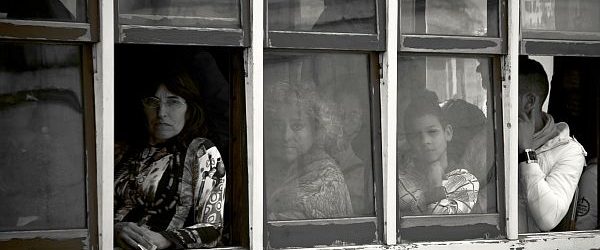The inaugural Overland Victoria University Short Story Prize for New and Emerging Writers is among the richest short story prizes in Australia, and it has been a fantastic opportunity to hear fresh voices from around the country.
From 622 entries, Enza Gandolfo, Jeff Sparrow, Jacinda Woodhead and I selected a short list of nineteen stories. Of the entries we received, 64 per cent were from women. Of the short-listed stories, seventeen are by women and two by men, figures which reflect the ratio of submissions in a blind-judged competition. Each of the stories on the short list has skill, energy and that great asset, a point of difference. I want to take this opportunity to congratulate all of the short-listed writers on this considerable achievement.
I also want to identify some common mistakes many of the unsuccessful entries made. Many dealt with dying relatives (cancer and dementia were popular), abusive parents and an emotionally impoverished masculinity. Time spent overseas and romantic love also provided material. Clearly the advice to ‘write what you know’ has been taken to heart. A few tried fantastical or speculative elements, but usually without emotional facility. Most entries sat neatly within the parameters of realism, so much so that I wondered if this was a result of the heavily realist culture of Australian literature in general or some bias within creative writing courses.
Structure was a common issue. Some stories had a good premise, but no axis of conflict; others were beautifully dressed, but with nowhere to go. A short story doesn’t have to have a neat ending, but it should turn – it should show readers the moment something changes. The short-listed stories were noticeably better at managing tension in the language, rather than relying on the content of the story to carry the drama. Some strong beginnings petered out; others were let down by clichéd language or clichéd characters (the alcoholic father, the kindly grandmother). A good short story needs to break the mould, to assert its own language, imagery and emotional landscape, and a lack of confidence was probably what held most of these submissions back. But there is plenty of promise here, and with practice and courage there will be many fine writers among this crop.
The three winning stories are markedly different in form, voice and character but each has admirable reach, setting an interesting premise and then rising to the possibilities it offers.
‘The Day the World Stayed the Same’ takes up a complex challenge. A tour guide in Vietnam, showing American and Australian visitors around the sites of wartime atrocities, finds himself in a moral grey zone that he struggles to explain. Melissa Fagan (Brisbane) has written a strong piece of politically engaged realism with excellent poise and a sense of scale, dealing maturely with the way that global politics infiltrate the everyday. Her writing has sensitivity and restraint; the texture of Vietnam is palpable, and the imagery carefully wielded.
‘The Killing Floor’ by John Turner (Sydney) is a feat of compressed tension. While many stories dealt with uncommunicative masculinity, the gothic imagery in this story, with its glint of knives, the dark of the abattoir and the toppled chess set, builds to a menacing crescendo. The uncertain conflict between the two male role models, and the boy’s hesitation to trust either, haunts this grim tale, lending it power. The threats at the heart of the story gain impressive momentum, particularly given its brevity; at 1400 words, it is one of the shortest stories we received.
The winning story by Tara Cartland (Melbourne), ‘Frank O’Hara’s Animals’, begins with an inhalation, and it is easy to hold your breath throughout, as the young Dimity discovers her power to stop time. For all its suggestions of evil, this story is suffused with a human longing for contact, and the sadness of being an outsider. As with its comic-book reference points, the fantastical isn’t there for its own sake, but for its metaphorical power. That power is finely wrought with a wonderful attention to detail: the child reaching to caress a bee suspended in air, or people and animals frozen in ‘unmoving communion’, as the story fragments build a coming-of-age narrative greater than the sum of its parts.
A great story can stop time, so that the business of the world around you falls silent, and all your attention is with the tale. Each of these stories was captivating, even on multiple readings, and each is a well-deserved winner. Here at Overland we’ve been very pleased to be able to offer a lucrative reward to good writing, to promote the visibility of the short story form with this competition, and in particular, to continue our support and encouragement of emerging writers. I can think of no happier way to begin my role as fiction editor.


